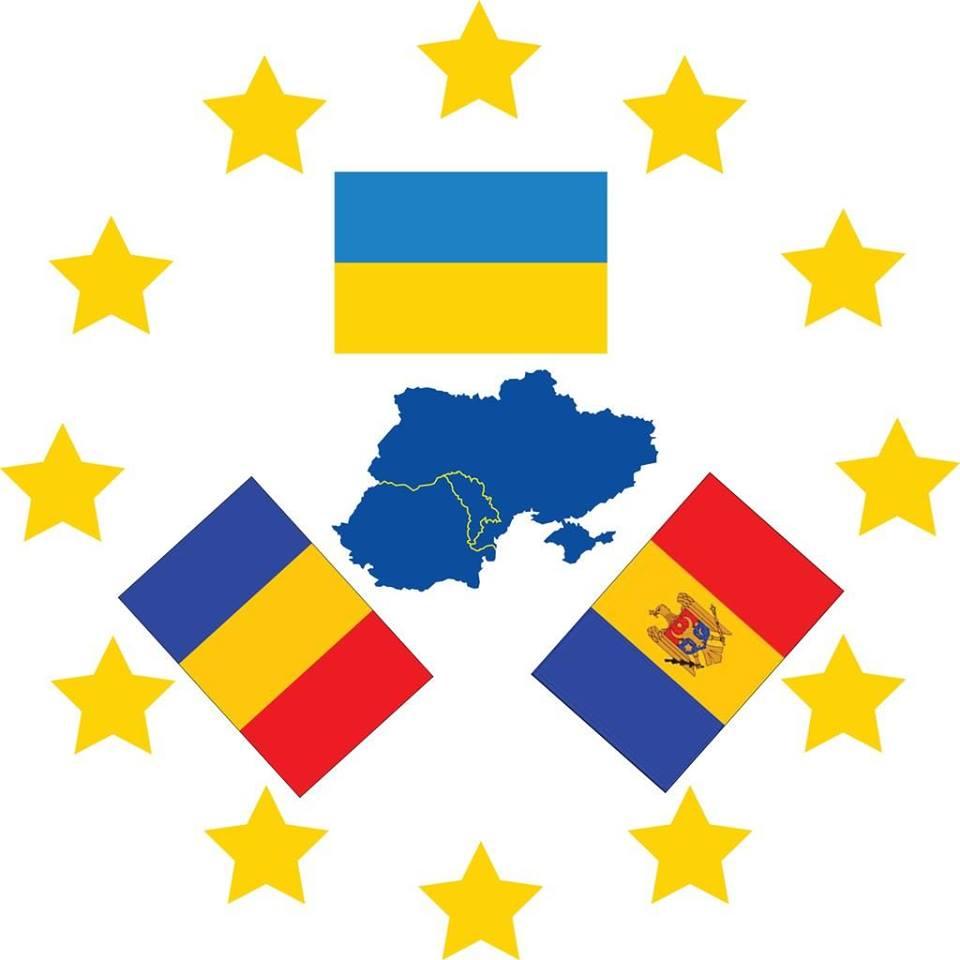
Mass-media in its classical and ideal sense (should we explore the concept of the ideal type developed Max Weber) should be a reflection of events and socio-political reality. However, from the ideal type to the real one there is a certain distance when the triangle Ukraine-Romania-the-Republic-of-Moldova is considered. It is worth noting that this geopolitical triangle is seldom addressed and discussed.
Narrative and Media of these countries regarding historical events and historical memory are completely different. Narrative and Media is approximately homogeneous in Romania, the historical policy of which is based on the concept of history of the Romanian people, not merely on history of statehood. Important events to the Romanian people are outlined in historical context without existential debate (The Great Union Day in Romania - December 1, when the country declared its sovereignty, events are dedicated to the struggle of the people and voivodship with the Ottoman Empire, the coverage of World War II as a war tragedy with the anti-Soviet, anti-communist narrative, now extrapolated to Russia as the heirs to the USSR).
The Republic of Moldova is significantly different from its polarized by Romania's historical and scientific narrative, by Narrative and Media, and the politics of history changes quite often depending on political leaders who select either pro-Western or pro-Russian policy, in other words the foreign policy vector determines historical narrative.
For some period of time, the history of Romanians was taught in schools, and the Republic of Moldova was separated in mass-media and in school textbooks as the following model, Austria – Germany. Subsequently, one nation implies two separate states. Then, as soon as the Communist Party and Party of Socialists regained their power, this principle was refused, and institutions of education and media controlled by these parties began to strengthen the narrative focused on "Moldovan people" and "Moldovan language" and on the historical role of the Soviet army, which liberated the Republic of Moldova from the Romanian and German invaders.
From other perspective, there are other mass-media that have a completely different narrative: the Soviet army is considered to be aggressive, there is no Moldovan language, it is a dialect of Romanian, communism caused deportation and suffering to Moldova, the culprit of the Transnistrian conflict is sole Russia and other options do not exist. We might state the coexistence of various, often contradictory narratives in Moldova. There is a cleavage at the level of historical memory: some media (controlled by Russia) broadcast the parade dedicated to May 9, and in this case, historical memory is applied as a weapon, other media – the events dedicated to Europe Day, some broadcast sermons of the Orthodox Church subordinated to the Russian Patriarchate and others – to the Metropolitan of Bessarabia, which subordinates to the Romanian Patriarchate. This situation regarding the perception of the past and illumination of the historical events is closely connected to the strategic plans of Moldova as a state.
Ukraine occupies an average position in this comparative triangle. Narrative and Media are neither typical nor homogeneous as in Romania, the cleavage is not as penetrating and profound as in the Republic of Moldova, and however, it still exists.
It is necessary to mention individual discussions about Soviet heroes and Ukrainian nationalist ones in the context of their perception in the west and east of Ukraine. There are usually common problems with the perception of the past through coverage of events, especially those relating to the former Soviet holidays: May 9, February 23, etc.
It is in the interest of countries, wanting to maintain post-socialist countries civilized in their tenets, to preserve the link between the consumer of information and particular events of the past because of media interest until the May 9 holiday, for example. It is particularly concerned with Russia. Unlike Ukraine, the Republic of Moldova does not prohibit Russian social networks, electronic services and anti-viruses, which from our perspective, weakens the informational independent space of this country.
In the Pridnestrovian Moldovian Republic, for instance, history is taught in schools from the perspective of the separate Transnistrian nation that is not connected to the Republic of Moldova, except the border, and the annexation of the historical Empire of Bessarabia to the Russian Empire in 1812 is "an opportunity to develop the region compared to the anachronistically retarded Ottoman Empire." The similar situation awaits Ukraine when the occupied parts of Donbas and Crimea are considered. The mass-media in the Pridnestrovian Moldovian Republic copy this official narrative, outlining two enemies of Tiraspol in the context of the Ukrainian-Russian conflict: on the one hand, Romania, which wants to romanize Moldova, on the other other, Ukraine, which is "not so amicable to Russia" as before and "has come under the US influence." This confined geopolitical territory creates its own historical existential myths, own media narratives, based on atavism, which complicates socio-political reality.
Unfortunately, attempts to find a solution to these situations through political barriers are not always effective, and cooperation at the level of historians, scholars, and media to form a consensual historical media narrative on cross-border territory is minimal, as these countries also have problematic topics, prohibited pages in the common history, the solution of which is in the interest of the triangle Ukraine-Romania-the-Republic-of-Moldova. Otherwise, during Hybrid Warfare, countries will be in conflict with each other, and third parties will profit from it.
In addition, common narrative requires to be formed on the information rapprochement of three countries. Without regular correspondents of the public broadcasters of Ukraine, the Republic of Moldova and Romania in neighboring countries, without joint media hubs for information exchange, are exposed to the risk of existing without having trust in each other. Therefore, the historical narrative is intertwined with the political and strategic themes of the present. This should be addressed both at the level of cultural and economic diplomacy, as well as at the level of civil society institutions and media strategies.
Autor: Herman Marin

Herman Marin, Candidate of Political Science, Editor-in-Chief of BucPress, Political Scientist, Journalist, Translator (Ukraine)